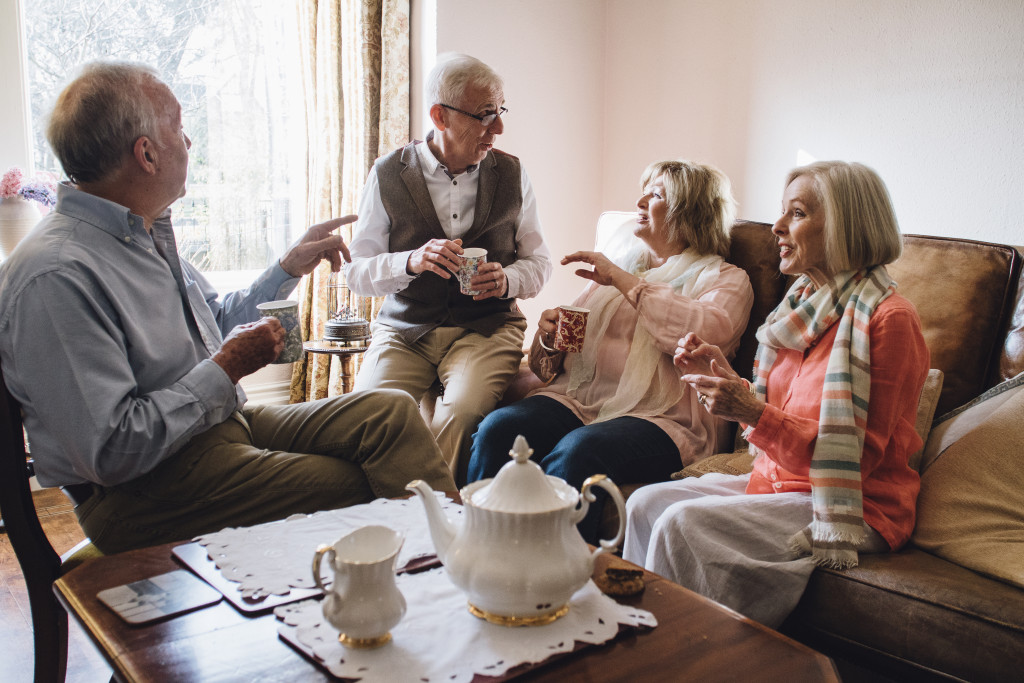Growing older isn’t a prison or a cage that limits what you can do to a certain amount of things. Life after retirement doesn’t have to seem so bleak and boring. This is an opportunity to enjoy life even more! But for many, living their best life after retirement can be difficult. Physical and mental health problems plague the elderly, and it’s difficult to fight them off. If you or your loved ones are getting on in years, here’s a quick guide on continuing to live a good life.
Take Extra Care of Your Mental Health
Everybody experiences ups and downs in their life, and this often takes a toll on a person’s mental health. Even seniors who have gone through most of their life happily can experience depression because of the drastic changes in their life. Taking extra precautions with a senior’s mental health is critical to help them live their life happily.
If you or someone you know is going through mental struggles, it’s best to visit a professional. Receiving the proper mental health care is critical, especially for senior citizens, as it’s often overlooked in favor of the more physical aspects of health and well-being. Maintaining a positive daily routine that empowers individuals and reminds them of their worth is a good way to start. Exercising, partaking in social activities, enjoying hobbies, and getting professional input are necessary components in maintaining good mental health.
Seniors Are Still Very Much Needed
Everyone wants to feel needed. A fear that many seniors have is feeling like they’re a burden to the people around them. But there are ways for us to make them feel a sense of belonging and usefulness. Instead of being too careful and not letting them do anything with their time, we should do what we can to make them feel wanted.
Light tasks around the house can help. Ask them to fold light laundry, give you a hand in prepping meals, or just keep you company while you’re running errands. There are times when we feel the need to just let them rest and not do anything. But they also need to spend energy to help them keep their muscles and joints active and healthy.

Don’t Stop Physical Activity
It’s given that old age inevitably comes with physical pains and the gradual weakening of muscles and joints. Despite this, there’s no reason to stop exercising and engaging in other physical activities. In reality, it’s all the more reason why someone should start living a physically active lifestyle. Regular exercise brings a lot of benefits to the elderly, making it as much of a requirement as a good diet is.
Something to keep in mind is that older people are still very much able to do exercises, even ones normally thought of as difficult. Studies have shown that lifting weights helps the elderly maintain (if not regain) a healthy amount of muscular mass, keeps the strength of their bones and muscles, and promotes better metabolic health. Of course, this is on top of the mental health benefits that come with fitness.
Exercise Mental Abilities as Well
Older people are often associated with more intelligence and wisdom. After all, years of experience in the world has sharpened their mind. However, retirement often comes with the lack of opportunity to use the mental skills that people have honed for years. This shouldn’t be a reason to not exercise mentally, as keeping one’s mental faculties sharp plays an important role in mental health.
For the elderly, reading books and doing puzzles might be good enough, but the options aren’t as limited as before. Playing video games has shown that it can help maintain mental abilities sharp, even for the elderly. It also encourages socialization, as many video games often have a social aspect to playing them.
Conclusion: Professional Care Over Guesswork
The importance of professional care could not be more emphasized. If you think your ability to take care of seniors (or yourself) is lacking, it’s best to look into assisted living facilities and similar services to facilitate a better life. Meal preps, recreational activities with peers, and health checkups are all parts of senior care that untrained personnel may fail at.
While the advice given here remains relevant, nothing can replace professional input. Seniors require extensive medical checks to make sure their bodily functions remain adequate for a pain-free life. They may require medication as well. Healthcare professionals are better equipped to provide help and assistance to seniors, and jumping over them because of assumptions can be quite dangerous. This isn’t just a matter of assuming “what’s right” for them; it requires professional skills that will prove quite invaluable in helping seniors live their best lives.
